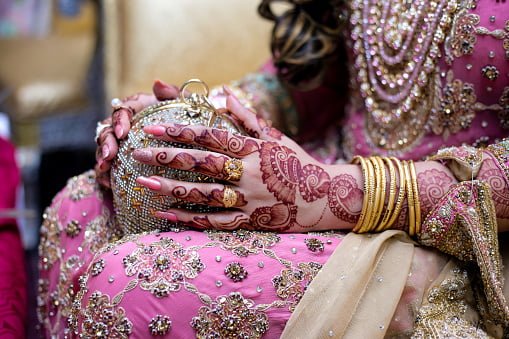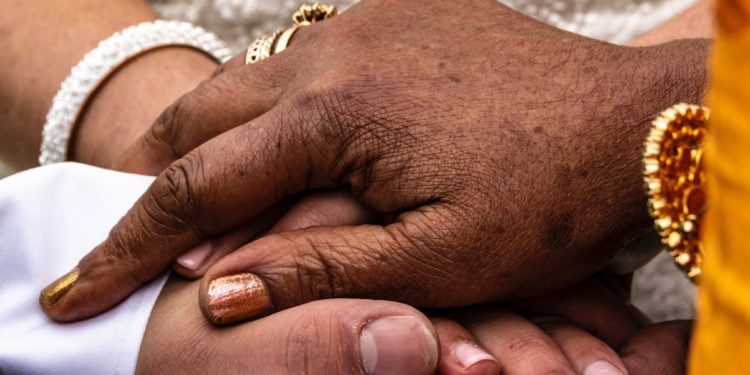When it comes to marriage, many people believe that love should be the only factor that matters. However, in Pakistan and other parts of the world, tradition often trumps personal preference. One controversial tradition is marriage between cousins – a practice that has been both celebrated and criticized for centuries. There’s an ongoing debate surrounding inbreeding versus tradition when it comes to cousin marriages in Pakistan.
In Pakistan, it is estimated that 60% of marriages are between first cousins, although the practice is declining. There are several reasons for this preference, including cultural norms and the desire to keep property within the extended family.
The debate surrounding cousin marriage in Pakistan is complex. On one hand, some believe that the practice should be discouraged due to its potential negative consequences. On the other hand, some see it as a tradition that should be respected. The younger generation in Pakistan is torn between upholding tradition and breaking away from outdated customs. On one hand, many young people see arranged marriages between cousins as a way to keep families close-knit and preserve cultural traditions. On the other hand, there is a growing movement of young Pakistanis who are pushing for change and more liberal values when it comes to marriage.
Still, cousin marriages are a lot more common in Pakistan than we think they are. While more public scrutiny in urban areas may be discouraging some young people from entering the industry, much work remains to be done in rural areas. Rather than wasting time and energy looking for acceptable partners outside of the “baradari,” many parents opt to wed their children to relatives who live nearby. Parents desire intermarriages because they are afraid their children will have a bad name or be excommunicated if they marry someone from outside the group. This works wonderfully for families that want to keep their social strata intact. Also, it is normal practice for one cousin (often the female) to be offered in exchange for monetary compensation, agricultural land, or a safe place to live when two cousins get married.
“As per research conducted by Dr. Muhammad Aslam khan, founding head of the Department of Human Genetics at the University of Health Sciences Lahore, in 2014, around 82.5% of parents in Pakistan are blood relatives of the first, second, or third generation. Just 6.3% of them share a common ancestry or belong to the same caste, while 6.8% are first or second cousins. In Pakistan, only about 4.4% of spouses are from different religious or ethnic backgrounds.”
Although these numbers are based on a sample size of 9,503 families, most of which are located in rural Punjab, the prevalence of consanguineous marriages in Pakistan is not surprising. Aslam khan’s research shows that genetic diseases are twice as likely to affect people whose parents are related. Sadly, most Americans either don’t know or prefer to disregard the possible downsides of interracial marriage in favor of its perceived financial or social benefits.

There are a number of reasons why cousin marriages should be eradicated in Pakistan. First and foremost, cousin marriages increase the risk of genetic defects and birth defects. According to the National Society for Genetic Counselors, children of first-cousin marriages have a 2-3 percent higher risk of birth defects than children of unrelated parents. This is because first-cousin couples share more than just DNA; they also share similarities in physical appearance, personality, and even health conditions.
Secondly, cousin marriages can lead to social isolation and exclusion. Families who marry within their own extended family often do so because they want to keep their wealth and status within the family. This can lead to other families feeling excluded from the inner circle, which can lead to social tensions and even conflict.
Furthermore, cousin marriages can have negative economic effects. Families who marry their daughters off to their cousins often do so because they cannot afford dowries for more eligible bachelors. This puts an unfair financial burden on the families of girls who are forced into these marriages. Additionally, it promotes gender discrimination, as women are seen as nothing more
So what can be done to eradicate cousin marriage in Pakistan? One option is to educate people about the potential risks and disadvantages of cousin marriage. Another option is to provide financial incentives for couples who choose not to marry their cousins. Or the government could outlaw cousin marriage altogether!
There is no easy answer when it comes to the question of what should be done to bring awareness to the practice of inbreeding, or marriage between cousins, in Pakistan. The debate surrounding marriages between cousins in Pakistan is likely to continue for some time. While there are valid concerns about the risks involved, many people continue to see this practice as a part of their cultural heritage.













